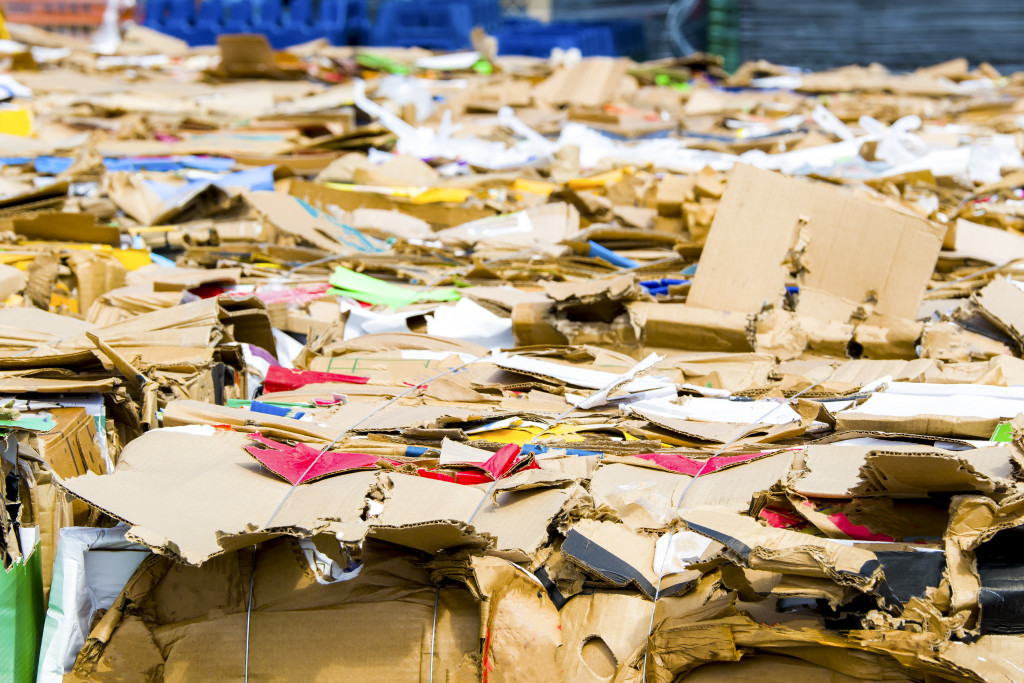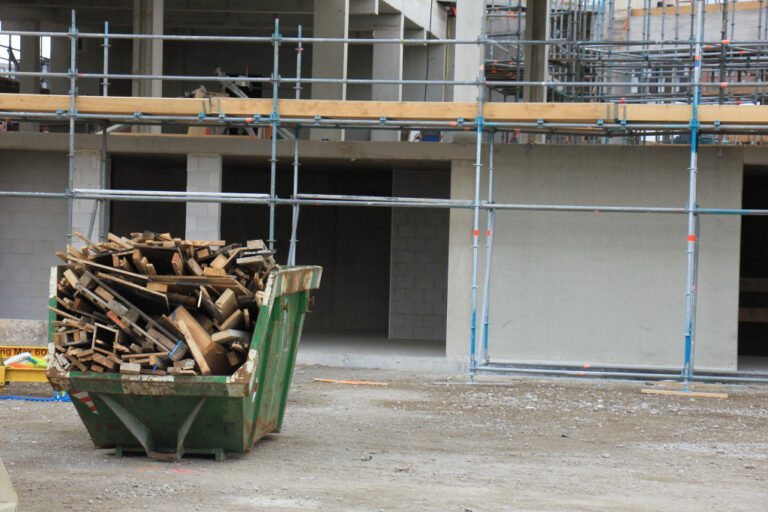- Effective construction waste management requires a strategic plan, proper sorting/storage, and continuous plan review.
- Partnering with waste disposal companies ensures efficient, compliant, and potentially cost-saving waste handling.
- Different construction waste types like concrete, wood, and packaging materials can be recycled or repurposed.
- Promoting environmental efforts strengthens the company’s reputation, attracts conscious clients, and provides a competitive edge.
Construction projects generate substantial waste due to factors such as overestimating materials, damage during storage or installation, and off-cuts that cannot be reused. The Environmental Protection Agency (EPA) reports that construction and demolition activities in the United States alone produce nearly 600 million tons of debris yearly, significantly more than any other single waste stream in the country. This underscores the critical need for responsible waste management strategies in the construction industry.
Every construction firm must be responsible for cleaning up after their projects and responsibly managing waste materials. Here are some critical steps to ensure proper construction waste management:
Create a Waste Management Plan

Creating a comprehensive waste management plan is a pivotal component of any construction project. Not only does it ensure compliance with legal requirements, but it also minimizes environmental harm and can save costs by reducing, reusing, and recycling materials. A strategically developed waste management plan should encompass the following stages:
Identify Types of Waste
It’s crucial first to identify the types of waste the construction project will generate. This can range from concrete and wood to packaging materials and old equipment. This step will guide the following stages of sorting and managing waste.
Sort and Store Waste
Once the waste types are identified, sorting and storing them appropriately is the next step. Segregating waste into recyclable, reusable, and disposable categories can significantly aid in efficient waste management. Dedicated storage areas should be created for different types of waste to prevent contamination and ease the disposal process.
Monitor and Review the Plan
Monitoring and reviewing the waste management plan is essential to ensure continuous improvement and compliance. Recording and analyzing data, such as the amount of waste produced, recycled, and disposed of, can provide valuable insights for future projects.
Partner with Disposal Companies

Proper waste disposal is crucial in any construction project. It prevents potential environmental damage, reduces landfill waste, and helps maintain compliance with local and federal regulations. In addition, it promotes sustainable construction practices and enhances a firm’s reputation for environmental stewardship.
Partnering with professional waste disposal companies brings several benefits. These companies have the expertise and resources to handle waste responsibly and efficiently, ensuring legal compliance. Additionally, they often have established relationships with recycling facilities, making it easier to divert waste from landfills. In some cases, they may even be able to assist in repurposing or selling reusable waste, leading to cost savings for the construction firm.
Here are a few types of construction waste to consider:
Concrete
Concrete is one of the most common types of construction waste, and it can be reused or recycled. Reusing concrete involves crushing and processing it for use in new projects, while recycling typically consists of grinding the material into aggregates for use as fillers. Partnering with a reliable concrete disposal company ensures safe and efficient removal and repurposing of concrete waste.
Wood
Wood waste can be recycled and repurposed for various uses, from mulch to animal bedding. Most wood waste is suitable for composting or burning, as well. Partnering with an experienced disposal company ensures that wood waste is disposed of responsibly and complies with local regulations.
Packaging Materials
Packaging materials such as cardboard, plastic, and Styrofoam can also be recycled. Partnering with a disposal company ensures these materials are collected, sorted, and sent to the appropriate recycling facilities. Additionally, it allows for the diversion of packaging waste from landfills and provides an opportunity to repurpose packaging materials for reuse in other projects.
Promote Environmental Efforts
Promoting environmental efforts in construction projects is integral for ethical and legal reasons and enhancing a company’s reputation and customer satisfaction. In the information age, clients, partners, and the general public are more aware and concerned about environmental issues than ever before. Construction companies that implement and promote sustainable practices are viewed positively, fostering trust and respect in the community. They are more likely to receive positive reviews and recommendations, which can lead to more business opportunities.
Moreover, eco-friendly initiatives can differentiate a company from competitors, providing a unique selling point. Construction firms can attract environmentally-conscious clients by showcasing commitment to environmental stewardship, reinforcing their brand as a responsible and forward-thinking industry leader.
Final Thoughts
Responsible waste management is a fundamental part of any construction project. By familiarizing yourself with best practices and partnering with experienced professionals, you can ensure that your projects generate minimal environmental negative impacts. This will benefit the community and promote ethical business practices, enhancing your firm’s reputation for responsible construction.




